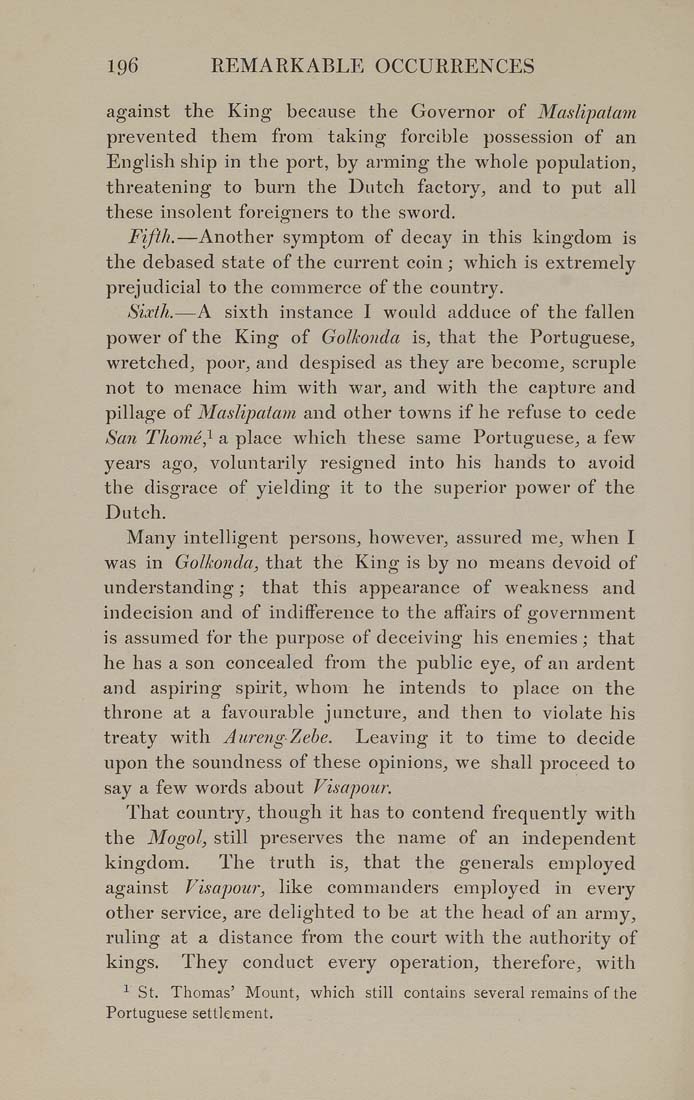196 REMARKABLE OCCURRENCES
against the King because the Governor of Maslipatam
prevented them from taking forcible possession of an
English ship in the port, by arming the whole population,
threatening to burn the Dutch factory, and to put all
these insolent foreigners to the sword.
Fifth.—Another symptom of decay in this kingdom is
the debased state of the current coin ; which is extremely
prejudicial to the commerce of the country.
Sixth.—A sixth instance I would adduce of the fallen
power of the King of Golkonda is, that the Portuguese,
wretched, poor, and despised as they are become, scruple
not to menace him with war, and with the capture and
pillage of Maslipatam and other towns if he refuse to cede
San Thome,^ a place which these same Portuguese, a few
years ago, voluntarily resigned into his hands to avoid
the disgrace of yielding it to the superior power of the
Dutch.
Many intelligent persons, however, assured me, when I
was in Golkonda, that the King is by no means devoid of
understanding; that this appearance of weakness and
indecision and of indifference to the affairs of government
is assumed for the purpose of deceiving his enemies ; that
he has a son concealed from the public eye, of an ardent
and aspiring spirit, whom he intends to place on the
throne at a favourable juncture, and then to violate his
treaty with Aureng-Zebe. Leaving it to time to decide
upon the soundness of these opinions, we shall proceed to
say a few words about Visapour.
That country, though it has to contend frequently with
the Mogol, still preserves the name of an independent
kingdom. The truth is, that the generals employed
against Visapour, like commanders employed in every
other service, are delighted to be at the head of an army,
ruling at a distance from the court with the authority of
kings. They conduct every operation, therefore, with
' St. Thomas' Mount, which still contains several remains of the
Portuguese settlement.
|








